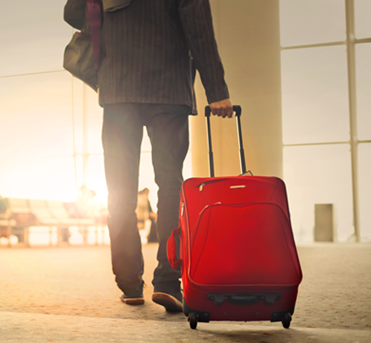01/09/2024
by Admin @ Stunster.com
 Wanderlust whispers promises of adventure, but with excitement comes responsibility. While exploring new horizons, your personal safety remains paramount. In a world where unforeseen situations can arise, understanding self-defense while traveling empowers you to navigate challenges with confidence. This guide equips you with practical tips and strategies to enhance your safety on the road, allowing you to focus on creating lasting travel memories.
Wanderlust whispers promises of adventure, but with excitement comes responsibility. While exploring new horizons, your personal safety remains paramount. In a world where unforeseen situations can arise, understanding self-defense while traveling empowers you to navigate challenges with confidence. This guide equips you with practical tips and strategies to enhance your safety on the road, allowing you to focus on creating lasting travel memories.
Before You Board
- Research destination safety: Know the crime rates, cultural norms, and avoid venturing into unfamiliar, high-risk areas. Utilize travel advisories and local blogs for insights.
- Inform loved ones: Keep family and friends apprised of your travel itinerary and contact information. Share estimated arrival and departure dates for each destination.
- Learn key phrases: Knowing basic greetings, directions, and emergency phrases in the local language helps you gain assistance and navigate safely.
- Invest in safety gear: Consider pepper spray (legal restrictions apply), personal alarms, or self-defense keychains. Familiarize yourself with their usage before packing.
- Make copies of documents: Scan and make digital copies of your passport, ID, travel insurance, and other vital documents. Store them securely online and print a hard copy for safekeeping.
On the Go
- Trust your gut: Intuition is powerful. If a situation feels wrong, avoid it. Take detours, hail a cab, or seek refuge in a well-lit, populated area.
- Stay alert and aware: Maintain situational awareness. Avoid distractions like headphones or phones while walking or exploring. Scan your surroundings regularly, paying attention to potential exits and escape routes.
- Blend in: Respect local customs and dress modestly if necessary. Don't flash expensive jewelry or valuables, and avoid appearing lost or confused.
- Stay connected: Inform the hotel reception or hostel staff of your planned activities and estimated return times. Keep your phone fully charged with essential apps for navigation and translation.
- Minimize risks: Avoid traveling alone after dark, especially in isolated areas. Opt for well-lit, populated streets and public transportation routes. Consider travel companions or guided tours for further security.
Accommodation and Transportation
- Choose reputable lodgings: Research online reviews and opt for well-located, secure accommodations with good lighting and CCTV cameras. Secure valuables in safes or locked luggage.
- Be selective about taxis: Use licensed services or trusted recommendations from hotels or locals. Avoid unmarked or unmetered taxis. Inform the driver of your destination before setting off.
- Be cautious on public transport: Stay alert, especially during late-night travel. Keep bags close to your body and avoid isolated compartments. Trust your instincts and don't hesitate to move to a more crowded area if you feel uncomfortable.
Communication and Assertiveness
- Set boundaries: Don't be afraid to say "no" if pressured into uncomfortable situations. Be confident and direct in your communication.
- Don't engage with strangers: Avoid prolonged conversations with individuals who seem overly interested or make you feel uneasy. Maintain polite but firm distance.
- Travel with confidence: Project an aura of self-assurance. Walk with purpose, hold your head high, and maintain eye contact. This can deter potential threats.
- Utilize technology: Emergency apps can connect you to local authorities or contacts. Share your live location with trusted individuals if necessary.
In Case of Emergency
- Remain calm and assess the situation: Don't panic. Evaluate the risks and potential escape routes.
- Attract attention: Make noise to draw attention to yourself, utilizing whistles, alarms, or screaming if necessary.
- Fight back if necessary: If escape is impossible and your safety is threatened, remember self-defense tactics. Aim for vulnerable areas like eyes, nose, throat, or groin.
- Seek help immediately: Alert local authorities or seek assistance from trustworthy bystanders. Provide clear details about the incident and your location.
Beyond the Physical
- Trust your intuition: It's your first line of defense. Learn to recognize and act upon red flags to avoid potentially dangerous situations.
- Maintain mental strength: A calm and prepared mind is critical in stressful situations. Practice mindfulness and deep breathing exercises to remain focused and clearheaded.
- Stay vigilant: Never let your guard down completely. Remain alert even in seemingly safe environments.
- Embrace cultural sensitivity: Respect local customs and traditions. Avoid behaviors that might be misconstrued or provoke unwanted attention.
Remember, self-defense is more than just physical techniques. It's about awareness, preparedness, and trusting your instincts. By incorporating these tips into your travel routine, you cultivate a confident and resourceful approach to navigating the world. Ultimately, the best self-defense weapon is awareness. Travel smart, stay safe, and focus on creating unforgettable memories on your adventures.
 Wanderlust whispers promises of adventure, but with excitement comes responsibility. While exploring new horizons, your personal safety remains paramount. In a world where unforeseen situations can arise, understanding self-defense while traveling empowers you to navigate challenges with confidence. This guide equips you with practical tips and strategies to enhance your safety on the road, allowing you to focus on creating lasting travel memories.
Wanderlust whispers promises of adventure, but with excitement comes responsibility. While exploring new horizons, your personal safety remains paramount. In a world where unforeseen situations can arise, understanding self-defense while traveling empowers you to navigate challenges with confidence. This guide equips you with practical tips and strategies to enhance your safety on the road, allowing you to focus on creating lasting travel memories.